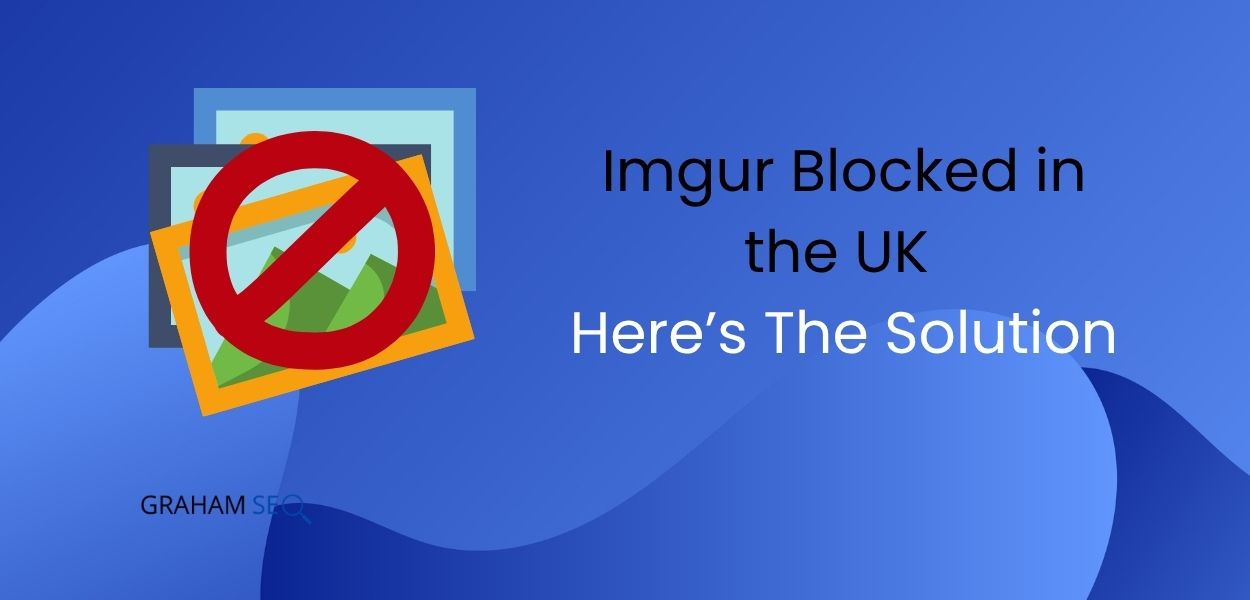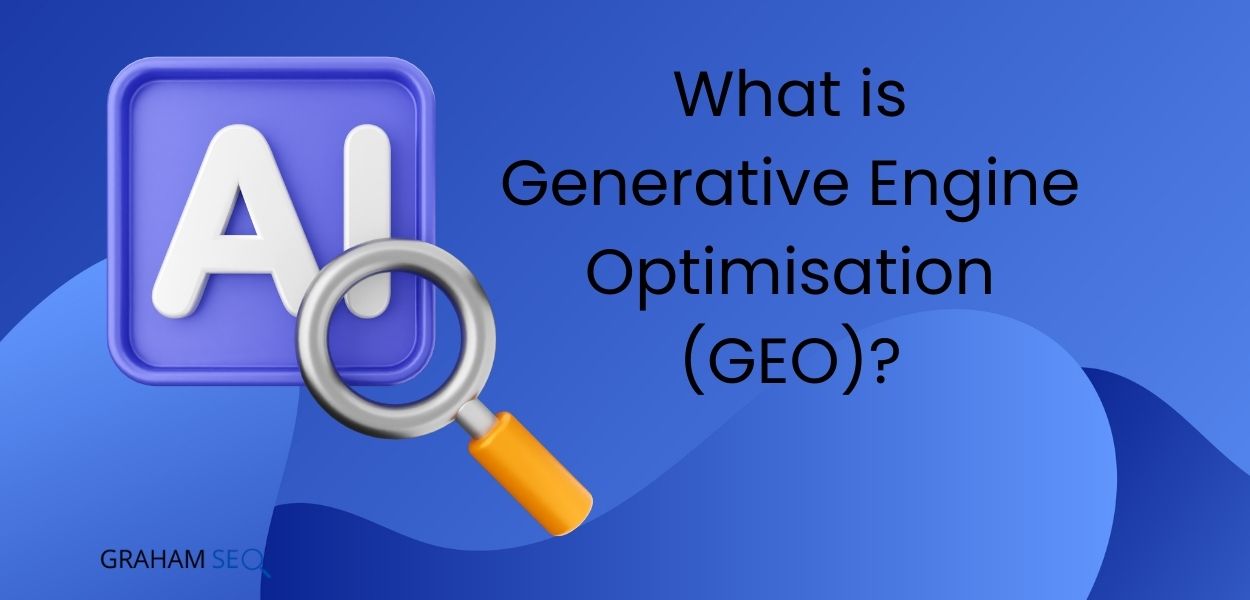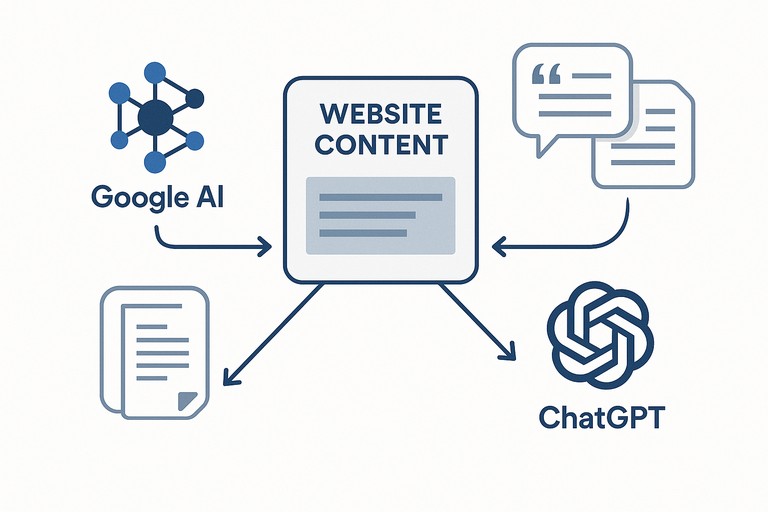
Generative Engine Optimisation (GEO) is the practice of optimising content to be discovered, cited, and referenced by AI-powered search engines like Google’s AI Overviews, ChatGPT, Perplexity, and Bing Copilot. Unlike traditional SEO which focuses on ranking positions, GEO ensures your brand becomes part of what AI tools say when users ask questions, fundamentally changing how businesses achieve search visibility in 2025 and beyond.
The search landscape has undergone a dramatic transformation. With over 400 million weekly users now turning to ChatGPT for answers and Google’s AI Overviews appearing on billions of searches monthly, we’re witnessing the emergence of Search 2.0. At Graham SEO, we help businesses navigate this shift through forensic auditing and strategic GEO implementation, ensuring your content not only ranks but gets cited by the AI systems that are reshaping how customers find information.

Generative Engine Optimisation is the strategic process of structuring content so AI-driven search engines can easily understand, extract, and cite your information when generating responses to user queries. This represents a fundamental shift from targeting keyword rankings to earning AI citations and mentions.
The urgency around GEO stems from changing user behaviour. Research indicates that 80% of consumers now resolve 40% of their searches without clicking any links, whilst 42% regularly use generative AI for recommendations. This zero-click environment means visibility depends increasingly on AI systems selecting your content for their synthesised answers.
Traditional SEO optimises for search engine crawlers and ranking algorithms, focusing on keywords, backlinks, and technical performance metrics. GEO operates differently by optimising for large language models that process content through natural language understanding and semantic relationships.
Where traditional SEO might target specific keyword phrases, GEO requires comprehensive topical coverage that demonstrates expertise across related concepts. Instead of optimising individual pages, GEO demands interconnected content clusters that establish topical authority. Rather than measuring success through rankings, GEO tracks citations, mentions, and inclusion in AI-generated responses.

AI search engines prioritise content that demonstrates accuracy, authority, and clarity through structured data, verifiable claims, and comprehensive topic coverage. The selection process differs significantly from traditional ranking algorithms.
AI models analyse content through vector embeddings that convert text into mathematical representations of meaning. They favour sources with clear attribution structures, including author credentials, publication dates, and reference links. Content with schema markup sees 72% higher citation rates because structured data provides explicit semantic signals about content type and relationships.
Citation-worthy content typically includes specific, verifiable claims supported by authoritative sources rather than vague generalisations. Research shows that medical practices implementing structured data schema achieve 40% more inclusions in AI health-related responses, demonstrating the importance of technical optimisation for GEO success.
Semantic architecture organises content around entities, user intent, and contextual relationships rather than isolated keywords. This approach mirrors how Google’s advanced algorithms like BERT and MUM analyse meaning and context across multiple factors.
Effective semantic architecture integrates entity-based organisation where content structures around knowledge graph entities rather than keywords. Topical clusters create semantic networks through pillar pages supported by detailed subtopic content. Intent mapping accounts for informational, navigational, commercial, and transactional query classifications.
Structured data markup, comprehensive content depth, and citation readiness form the technical foundation for GEO optimisation. These elements help AI systems understand, trust, and reference your content.
JSON-LD structured data provides the clearest signals to AI systems about content meaning and relationships. Implementation should focus on Article, FAQ, Organization, Person, and Product schema types. The markup must create connected graphs rather than isolated blocks, helping AI understand entity relationships across your site.
Content modularity increases AI extraction potential by breaking information into standalone but interconnected components. Clear heading hierarchies using H2-H4 tags with relationship indicators help AI map content structure more accurately. Dynamic entity linking that updates based on emerging semantic relationships maintains higher GEO visibility over time.
At Graham SEO, our forensic approach to GEO implementation begins with comprehensive content auditing using semantic SEO principles. We analyse how AI systems currently interpret your content and identify gaps in topical coverage that prevent citations.
Our optimisation process structures content using question-answer formatting that mirrors AI training data patterns. We implement the 360-degree content model covering primary topics, directly related subtopics, contextually adjacent concepts, and emerging connections. This distribution approach achieves 67% higher GEO citation rates whilst maintaining traditional rankings.
We ensure citation readiness through specific, up-to-date, verifiable claims supported by authoritative sources. Author credentials and organizational structured data reinforce citation metadata. Regular content refresh cycles signal updated information to AI systems scanning for current, reliable sources.
Early adoption of GEO provides competitive advantage as AI-driven search continues rapid expansion. The data demonstrates significant shifts in search behaviour that will only accelerate.
ChatGPT reached 100 million users faster than any application in history and now processes over 10 million queries daily. Google’s AI Overviews appear on more than half of tracked keywords, fundamentally changing result page layouts. Analysis of 75,000 brands found that 26% had zero mentions in AI-generated responses despite ranking well in traditional search results.
This visibility gap stems from AI systems prioritising content with strong brand signals and contextual authority over traditional SEO factors. Businesses that establish GEO strategies now position themselves advantageously as these systems mature and user adoption increases.
My SEO consultancy service addresses GEO challenges through forensic investigation and strategic implementation. My team and I don’t provide templated solutions but build custom strategies based on how AI systems actually process and cite content in your specific industry.
We begin with comprehensive auditing to identify why your content isn’t appearing in AI responses. This involves analysing competitor citations, assessing semantic gaps, and evaluating technical implementation. Our forensic approach uncovers the specific issues preventing AI systems from discovering and trusting your content.
Implementation focuses on semantic architecture development, structured data optimisation, and content restructuring for AI readability. We create measurement frameworks tracking AI citations, mention frequency, and source attribution accuracy. Ongoing optimisation expands topical coverage as AI systems identify new relationships and opportunities.
Local businesses, e-commerce sites, and B2B companies each require tailored GEO strategies that align with how AI systems handle different query intentions. Understanding these distinctions ensures effective implementation.
Local businesses benefit from location-specific entity markup and community engagement optimization. AI systems frequently cite local forums, review platforms, and community discussions for location-based queries. Building authentic presence across these platforms while implementing LocalBusiness schema creates multiple citation opportunities.
E-commerce businesses need comprehensive product information architecture with detailed specifications, comparisons, and user feedback integration. AI systems favour detailed product descriptions with technical specifications when generating shopping recommendations. Structured product data combined with authentic review content increases citation potential for commercial queries.
B2B companies require thought leadership content that demonstrates industry expertise across multiple related topics. AI systems prefer comprehensive guides and authoritative analysis when responding to professional queries. Building topical authority through interconnected content clusters establishes citation worthiness for industry-specific questions.
Traditional SEO metrics don’t capture GEO success effectively. We track AI-specific indicators including citation frequency across different AI platforms, answer snippet inclusion rates, source attribution accuracy, and conceptual coverage expansion.
Our measurement approach monitors how AI systems reference your content over time, tracking improvements in mention quality and context relevance. We assess competitive positioning within AI responses and identify opportunities for increased visibility across different query types.
ROI measurement focuses on qualified traffic from AI referrals, conversion rates from AI-sourced visitors, and brand mention quality improvements. Early data suggests AI-optimised content performs better across multiple metrics, with some businesses seeing 900% increases in referral traffic from AI systems.
The most frequent GEO mistakes include treating it as a replacement for traditional SEO, focusing solely on technical implementation without content depth, and attempting to manipulate AI systems rather than providing genuine value. Understanding these pitfalls ensures effective strategy development.
Many businesses approach GEO as a quick technical fix, implementing structured data without addressing content quality or topical authority. AI systems prioritise comprehensive, authoritative content over technically perfect but shallow pages. Success requires balancing technical optimisation with genuine expertise demonstration.
Another common error involves creating content specifically for AI manipulation rather than user value. AI systems become increasingly sophisticated at identifying content designed to game responses rather than provide genuine information. Sustainable GEO requires authentic expertise and helpful content that naturally earns citations.
GEO represents the natural evolution of search optimisation as AI systems become more sophisticated and user behaviour shifts toward conversational queries. Businesses that adapt early gain competitive advantages as traditional ranking factors become less relevant.
At Graham SEO, we help businesses navigate this transition through forensic auditing that identifies specific GEO opportunities and implementation strategies that build sustainable AI visibility. Our approach combines technical expertise with strategic thinking, ensuring your content becomes part of the conversation when AI systems respond to customer queries.
Whether your site needs comprehensive GEO implementation or specific technical fixes to improve AI citations, our team provides the forensic analysis and strategic guidance necessary for success in the evolving search landscape.
If you are interested in Generative Engine Optimisation for your business please click here.
SEO optimises for search engine rankings and click-through traffic, whilst GEO optimises for AI citations and mentions within generated responses. SEO focuses on keywords and backlinks, whereas GEO prioritises semantic content structure and topical authority.
GEO results typically appear within 3-6 months of implementation, depending on content quality and technical optimisation depth. AI systems update their knowledge bases regularly, but establishing topical authority and citation worthiness requires consistent content development and structured data implementation.
GEO complements rather than replaces traditional SEO, as both organic rankings and AI citations contribute to overall search visibility. Successful search strategies integrate both approaches, using traditional SEO for traffic generation and GEO for brand authority and AI presence.
Focus on Google AI Overviews, ChatGPT, Perplexity, and Bing Copilot as the primary platforms driving GEO value. Each platform has different source preferences, with ChatGPT favouring authoritative sources, Google AI Overviews prioritising comprehensive guides, and Perplexity citing industry-specific expert sites.
Track AI citation frequency, mention quality, source attribution accuracy, and referral traffic from AI platforms. Use specialized monitoring tools to assess competitive positioning within AI responses and identify opportunities for increased visibility across different query types.
Comprehensive guides, FAQ sections, data-driven comparisons, and expert analysis perform best for GEO citations. Content should demonstrate topical authority through interconnected information clusters rather than isolated pages targeting individual keywords.



Opening hours
Monday: 09:00 - 18:00
Tuesday: 09:00 - 18:00
Wednesday: 09:00 - 18:00
Thursday: 09:00 - 18:00
Friday: 09:00 - 18:00
Company info
Graham SEO Ltd
Company No.10710878
VAT No. 349888132
Office 2, Oaktree Court Business Centre
Mill Ln, Little Neston, Ness
Cheshire, CH64 8TP
Copyright © Graham SEO Ltd 2026. All Rights Reserved